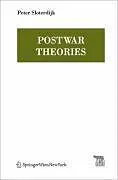Klaus-Dieter Müller Following defeat in battle every culture receives the oppor- nity to re-evaluate its normative basic attitudes or as Sloterdijk puts it 'its moral grammar'. Procedures of this kind either end in a process assuming energies of revenge or the decision is made to transform the cultural rules ascertained as detrimental to behavioural patterns of a less harmful form. Is there such a thing as a civilizing in?uence of cultures by reorientation which brings about post-heroic values? Peter Sloterdijk uses the term 'metanoia' to describe this process. He does not mean by this Christian repentance but pragmatic relearning in order to - crease civilisational viability (see p. 14). Sloterdijk calls the victor's post-stressory work of evaluation 'af?rmation'. In his, in reference to 'metanoia' and 'af?rmation', exemplary "excursion into the jubilee culture" of Franco-German re- tions Sloterdijk awards the Germans a "process which at no time complicated but also at no time threatened the metanoe- ical tranformation process of the vanquished German people", which in its extreme forms consisted of triumphant self-hate and aggression towards each and every national tradition.This is re?ected in the biographies of many Germans. In my case it was the same as in many other families, quarrels arose as to guilt and responsibility.
Autorentext
Peter Sloterdijk was born in 1947. He studied philosophy, German and History in Munich from 1968 to 1974. He has worked as a freelance writer since 1980, and published a number of articles and books on time diagnosis, cultural and religious philosophy, art theory and psychology. Sloterdijk has been a professor of philosophy and media theory at the Karlsruhe School of Design since 1992. He took charge of the Institute for Cultural Philosophy of the Academy of Fine Arts in Vienna in 1993. Sloterdijk became the director of the Karlsruhe School of Design in 2001 and has also received a number of awards including the Christian-Kellerer Prize for the future of philosophical thought, and he was named a, "Commandeur de l Ordre des Arts et des Lettres," by the Republic of France. He also recently received the 2008 Lessing Prize for criticism.
Leseprobe
4 Italy 1918: Falsifications of the results of war, politics in a big way (p. 18-19)
At this point I do not wish to restrict my focus to the post-war periods of the 20th century. And it is here that attention will be paid to German and French developments which took place after 1945 and their possible correlation. In order to illustrate the conceptual framework of this examination which is becoming more concrete, it will be essential to introduce an analytical intermezzo dealing with certain anomalies of consequence in the post-war period starting in 1918 so that the processes are coherent.
We will focus our attention on Italy because it is the key to understanding further considerations, and it is here that the concept of 'war result falsification' first materializes clearly. In connection with Mühlmann's model of post-stressory decorumrevision we have already mentioned that the rule is that after battles fought a culture gets the opportunity to re-evaluate and possibly revise its basic normative attitudes, one could also say its moral grammar, in the light of the results of the combat. The benchmarks for this examination are called affirmation in the case of victory and metanoia in the case of defeat.
Now we should remember that in 1918 the Italians found themselves in a position where neither of these two alternatives was applicable. As is generally known the Italians withdrew from the alliance of 1882 with Germany and Austria-Hungary (the so-called Triple Alliance) in August 1914 thus signalling their having become ambivalently neutral. Sometime later as a result of the secret treaty of London (which promised Italy in the event of victory considerable territorial gains) it defected to the Allied camp by declaring war on Austria-Hungary at the end of May 1915. But despite many heroic sacrifices victory was not to be for the Italians. Only thanks to massive allied assistance was it possible that Italy, although it was completely finished militarily and on the verge of political collapse (especially after the disastrous defeat in the 12th Battle of the Isonzo near Tolmein in October 1917), found itself on the winning side at the end of the war.
The ambiguity of this position accounts for the troubles of postwar history in Italy. One spoke of vittoria mutilata when one should have termed it a defeat which had turned into a counterfeit victory. This explains why Italy was only in a position to achieve a semi-metanoia. The first signs of this manifested themselves in the initial successes of the Socialists in 1919 and 1920 in which a newly emerged ultra-nationalist party called for an immediate heroic affirmation and shortly afterwards established itself along these lines - Mussolini winning nothing less than 66% of the votes in the elections in January 1924.
Out of this situation, which fed the most vehement forms of disclamatory affirmation, emerged the movement of pure activism, mobilization for its own sake, which went down in history under the name of Fascism. Among the countless enquiries devoted to this subject there is hardly one which befittingly sheds light on the basic fact that primary Fascism was the result of a falsification of the actual outcome of the war in which the real or virtual loser presented himself as victor nevertheless, or better still as hypervictor.
Inhalt
Theory of the Post-War Periods.- Europe, post-historical.- Heiner Mühlmann's Maximal-Stress-Cooperation-Theory.- Europe after Napoleon.- Italy 1918: Falsifications of the results of war, politics in a big way.- France 1945: The double falsification.- Germany 1945: Metanoia.- France 2007: Imperial temptation and the implosion of the left-wing.- Germany 2007: The idiot of the European family in the phase of normalization - the Walser Affair.- Happy disassociation: Polemological prospects with René Girard.
